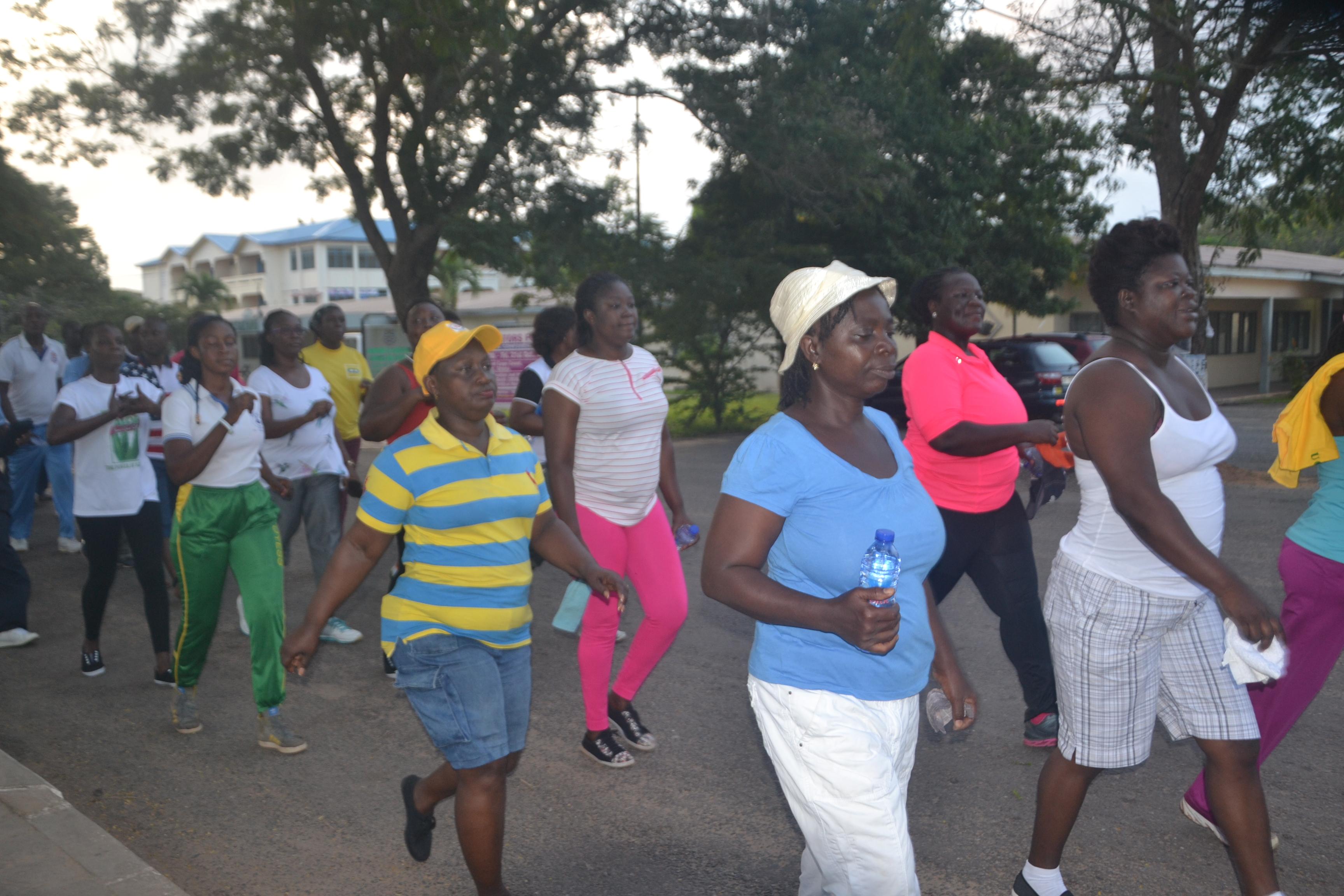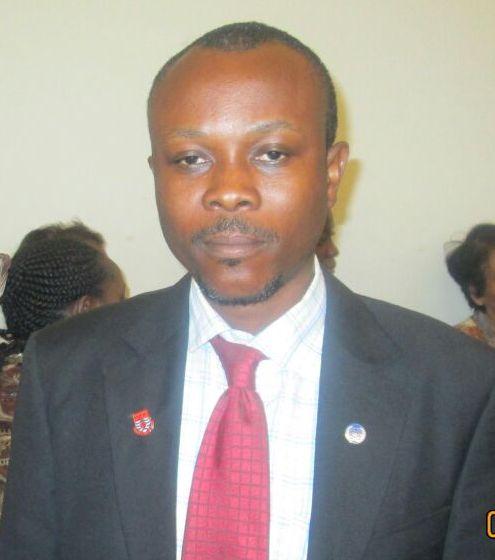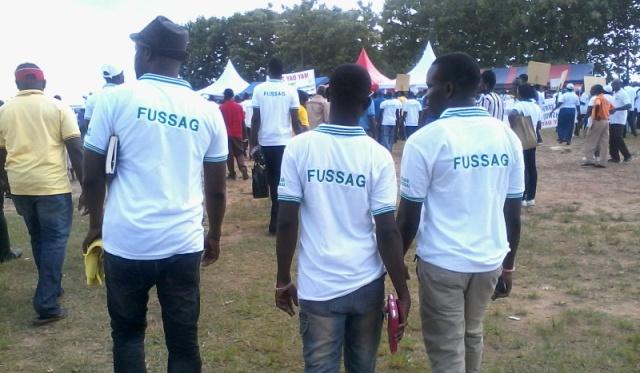Author Archives: fussagucc
Housing Project
Lorem ipsum dolor sit amet, consectetur adipiscing elit, sed do eiusmod tempor incididunt ut labore et dolore magna aliqua. Ut enim ad minim veniam, quis nostrud exercitation
Land Projects
Lorem ipsum dolor sit amet, consectetur adipiscing elit, sed do eiusmod tempor incididunt ut labore et dolore magna aliqua. Ut enim ad minim veniam, quis nostrud exercitation
FUSSAG-UCC Institutes Monthly Health Walk
The Chairman of the Federation of Universities Senior Staff Association of Ghana(FUSSAG) Local Chapter of the University of Cape Coast (UCC), Mr. Daniel Egyir, has announced plans to introduce monthly health walk for members of the Association to keep them healthy.
He said exercise helps in the reduction of certain medical conditions which mostly affect members due to the nature of their work such as back ache, joint pains, among others.

Mr. Egyir made the announcement when members of FUSSAG- UCC embarked on a 4 km health walk on campus. The walk, which started from the Casely-Hayford Field through some principal streets of the University and ended at the New Cape Coast Stadium, was on the theme ” Walk for Health, Health is Wealth”.
He urged members to embrace exercise to stay fit and healthy. The Chairman said when members patronise the health walks, they would be healthier and be more productive at work. Participants of the health walk were taken through some aerobics by the instructors of the New Cape Coast Sports Stadium Physiotherapy Centre.
The well-attended event was accompanied by a brass band.
Arthur Egyir Retains UCC FUSSAG Chairmanship Position
A chief auditing assistant at the directorate of internal audit of the University of Cape coast, Daniel Arthur Egyir has been re-elected as the chairman for the UCC chapter of the Federation of University senior Staff Association of Ghana with a landslide victory. He polled seven hundred and forty nine votes to beat his contender Lawrence Ampah who had a hundred and thirty nine.
The announcement of his re election was greeted with a thunderous applauds and cheers from the crowd who had gathered at the scene of the declaration.
Mr. Arthur Egyir who could not hide his joy after being declared winner, expressed appreciation to the members for reposing such great confidence in him by electing him again for a second term.
According to him, he is ready to work collaboratively with other elected executives to give FUSSAG the needed facelift it deserves. He called all members to rally behind him, stressing; that without their support FUSSAG cannot achieve the progress it needs.
Charles Amos Adom was elected as the first vice chairman with 440 votes to beat his contender Francis Kissi who had 431. On the ticket of the 2nd vice chairperson, Grace Koomson Arthur sailed ahead her contender with 578 votes to claim the position.
Other elected executives include Kofi Adom Nyankey for secretary and George Quarshie as Assistant Secretary.
Vandyke Peter Arhin, Raphael Charles Ntsiful, Kingsley Ato Baiden and Samuel Marcourt were elected as council members for the Association.
Source: EMMANUEL TEI BIO/ATLFMNEWS
Payment of Electricity Rebate
The Ministry of Finance has given an approval for the implementation of the mediation report signed by Fair Wages and Salaries Commission (FWSC) and the Federation of Universities Senior Staff Associations of Ghana (FUSSAG) on payment of Electricity Rebate to Senior Staff of Public Universities.
A letter was sent to the Auditor General, requesting an audit of claims to enable the Ministry authorise payment.
UCC Staff Appraisal and Reward Policies
One of the core mandates of every vibrant institution is human capital development resulting in quaility contribution by its workforce. To efficiently manage the workforce, there is the need to appraise and reward performances.
At its 86th Meeting held on 25th February, 2015, the University of Cape Coast Governing Council on the recommendation of the Academic Board approved policies on Staff Appraisal, Reward and Recognition.
Click to download (i) Staff Appraisal Policy (ii) Staff Reward & Reconition Policy
SSNIT Pension Computation & Tit-Bits
KEY CHANGES TO OLD SOCIAL SECURITY
- Reduced number of qualifying years from 20years (240 months) to 15years (180 months). Minimum age for drawing benefits is still 55years.
- Reduced total amount of contributions to SSNIT. That is, 11% out of the 18.5%. However, 5% of the 18.5% will now go into full private management where you can enjoy lump sum benefits.
- Employees with fewer than the minimum 15years qualifying years will be entitled to a lump sum benefit but loses out on a monthly pension income.
- SSNIT shall pay monthly pension incomes only and no more 25% one off tax-free cash lump sum.
- Guaranteed period of enjoying benefits is increased from 12years to 15years. Guaranteed period is the number of years an employee enjoys pension benefits after retirement.
- If a retiree dies before the expiration of the guaranteed period, the remaining benefits will be paid as a lump sum to his/her beneficiaries.
- Tax exemptions for all provident funds with NPRA.
- With the new scheme, you can earn a pension right of between 37.5% and 60% when you contribute a minimum of 15years or 180 months into the scheme at the time of your retirement.
- Additionally, you enjoy 0.9% per year or 0.075 per month on every extra year or months you contributed into the scheme.
- In a case where the months are not a full year or 12 months, the method in calculating the three best years is different. In this case, the average of best 36 months is used instead of the straight three best years’ average. You count backwards to get the full 36 months.
- Calculation of pension right depends on your age at retirement and the number of months you have contributed into the scheme.
- An employee who has not attained the retirement age may withdraw all or part of the accrued benefits from a scheme after ten years from the date of first contribution in the case of provident fund or personal pension scheme.
- Point (12) above however, does not apply if an employee has been certified to be incapable of normal gainful employment due to a permanent physical or mental disability; or as part of a person’s estate for his/her beneficiaries if he/she dies.
- Tier 1 is a defined benefit scheme and contributions are fully tax -exempt and are managed by SSNIT.
- Tier 2 is a defined contribution scheme and contributions are fully tax-exempt and privately managed by NPRA licensed service providers.
- Tier 3 is an optional contributory scheme with monthly contributions of up to 16.5% of the employee’s basic salary. It is tax-exempt. If an individual has been in the scheme for ten (10) years or more, he/she will receive all contributions made under the scheme in addition to all returns earned on their contributions at the time of exit. In the event of an exit prior to the contributor’s tenth anniversary, a marginal tax rate of 15% will be applied to the contributor’s total redemption amount.
FWSC Request to implement mediation outcome on Electricity Rebate
In response to a complain lodged by FUSSAG to Fair wages and Salaries Commission (FWSC) for the consolidation of Electricity Rebate and 15% Special Allowance; FWSC however wrote to request for the implementation of only Electricity Rebate Allowance to Chief and Principal Technical Classes of Senior Staff.
The effective date of implementation is subject to negotion
MAY DAY 2015
May Day 2015 was marked across the ten regions of Ghana. In the Central Region, it was hosted in Twifo-Hemang. The Executive Commitee of FUSSAG-UCC wishes to express appreciation to all members for their participation in Workers’ Day 2015.
Workers carried placards expressing their worries and dissatisfaction with the Government policies and administration especially the power crisis – popularly called ‘dumsor’. Some of the placards read, “Enough is Enough”, “Fix Dumsor Now”, ” Our pensions need safety”
The Central Regional Secretary of the TUC, Mr Samuel Doughan, urged government to do more to resolve the energy crisis. He noted that a lot more workers might lose their jobs if the energy crisis was not solved urgently.
The Central Regional Minister, Mr Aquinas Tawiah Quansah, advised workers to conserve energy as a means of prolonging its usage. He commended workers for their commitment to work in spite of the economic challenges the country was facing.









